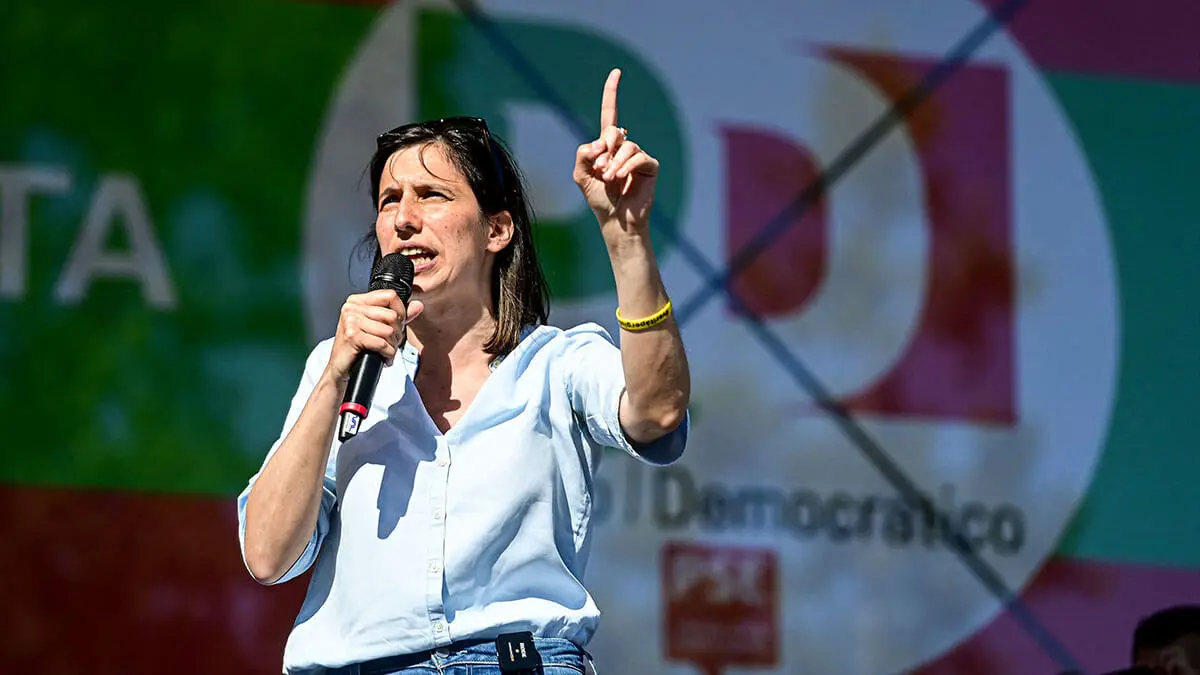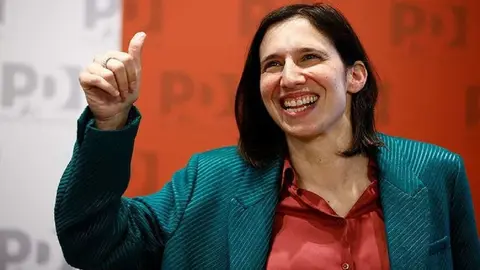Ely Schlein and the unity of the centre-left

But this is not to say that there have not been recent notable events that have led to the activation of political forces in the coming months. The elections to the European Parliament on 9 June drew a very important electoral reality on both sides of the parliamentary spectrum: on the centre-right, the clear superiority of the Roman Meloni over her two coalition partners (the two deputy ministers, Antonio Tajani and Matteo Salvini); and, more importantly, on the centre-left, the emergence of a strong leadership by the still young Ely Schlein, secretary general of the Democratic Party since February 2023. Indeed, Schlein was not only clearly the most voted of all the parties belonging to the centre-left, but she also managed to improve very substantially the poor voting figures obtained by her party in the 2019 European elections and, above all, in the 2022 general elections (in the latter case, she managed to increase the level of support among the electorate by more than 5 points).
So that meant the early ‘retirement’ of the previous leaders of the PD: Pierluigi Bersani, Matteo Renzi and Nicola Zingaretti. At the same time, Schlein managed to outperform his usual coalition partner (the Five Star Movement) and the more left-wing sector (the Green and Left Alliance) by a wide margin. Not to mention the setback for the two leaders of the more temperate centre-left: both former premier Renzi's Italia Viva and former minister Calenda's Azione failed in both cases to win a single MEP, failing to pass the ‘soglia del sbarramento’ (minimum threshold for entry into the European Parliament), set at 4%, which in the case of Italia Viva stood at 3.8%, a figure that was even worse in the case of Azione (which failed to pass 3.2%).
Although the two-year legislature has not yet been completed (the Meloni government will be in office for two years this October, if there are no changes before then due to the departure of Minister Fitto to take up a Vice-Presidency of the European Commission), Schlein, aware that she has run out of rivals within her part of the parliamentary arc and in the knowledge that none would dispute her leadership, offered, with a very clear expression (‘no more vetoes’), a negotiating table so that the real amalgam of parties that make up the centre-left could sit down to negotiate a coalition that could compete on equal terms with the centre-right, which has been perfectly assembled since the March 2018 elections and stands out for its significant degree of stability.
As was to be expected, Schlein's offer, which was based on a fundamental reality (the current electoral law, known as ‘Rossatellum bis’, approved back in October 2017, favours coalitions over parties standing alone), has elicited a variety of reactions. The most favourable reactions have come from both the so-called ‘reformist sector’ of the PD and Matteo Renzi's Italia Viva, and even Pierluigi Bersani, who is not known for his particular affection for his successor at the head of the PD (we are talking precisely about Renzi), has also stated that the vetoes must come to an end, although with a personal nuance: that not only should there be no vetoes, but also no ‘ambiguity’.
In the face of all this, the angriest reaction has come from Five Star, which does not want to know of any possible alliance with Matteo Renzi, whom they do not forgive for the fact that the former president of the Council of Ministers removed them from the government at the end of January 2021 so that President Mattarella could appoint in his place the prestigious economist and financier Mario Draghi, who was at the head of the Executive from mid-February 2021 until the end of October 2022, during which time he managed in a single year to achieve the following results. Incidentally, in a single year (2021) he achieved a growth in gross domestic product of 8.3 percentage points, a figure not seen since the end of the 1980s. It is true that Draghi was favoured by the strong momentum of the return to economic activity after the coronavirus, but also that his impeccable management, in which his eight ministers personally proposed by the Roman financier were key, had a lot to do with the recovery of national wealth, adding 3 more points of growth in 2022. Something that, almost certainly, the Five Star rulers, given their extraordinary level of incompetence while governing the country (anyone remember Bonafede, Di Maio or Toninelli?), whether in coalition with Salvini's League or the PD, would not have achieved had they remained in government.
Despite this angry response from the ‘pentastellini’, Schlein continues with his idea of bringing everyone together in the same coalition, assuming the role of the so-called ‘federatrice’. Renzi has recalled, with his characteristic sense of humour, that he is not Schlein's ‘best friend’ (among other reasons because he knows that Schlein was for years the leader of the PD's youth faction that confronted the party leadership when Renzi was secretary general). But the Tuscan politician, already well versed in high politics, knows that either this coalition is achieved or the centre-right will have a lot of chances of achieving a second consecutive legislature under his control.
The fact is that there is a fundamental element to take into account: the country's ageing population, which is leading to an increasingly conservative society. Moreover, since the Democratic Party was created in October 2007, it has gone from defeat to defeat, with the exception of Bersani's pyrrhic victory in the general elections of February 2013. Proof of this is that, with Schlein, up to five different general secretaries have already been elected, which gives an average of just over three years of life for each leader of this centre-left party, itself subdivided into its famous ‘internal currents’ and where ‘grey’ politicians abound everywhere.
The young Bolognese leader Schlein is aware of all these difficulties, but she must try: if Meloni managed to become the first female prime minister (October 2022), why shouldn't she be the first female prime minister of the centre-left? Moreover, the economic performance does not exactly invite optimism: if in 2022 the economy grew by more than 3 points, in 2023 it is already down to a meagre 0.9%. The ‘per capita’ debt continues to grow (since Meloni came to power, each Italian has gone from paying 46,000 euros to 48,000 euros), and there is less and less money for social policies (and even less investment in modernising the productive apparatus). The Meloni government's General State Budgets for 2024 achieved a stable risk premium (around 150 basis points), but did not prevent the opening of a dossier for breach of the deficit targets: the deficit should have been 3.3% in 2023, but in the end it went to no less than 7.4%. And irregular immigration continues: Meloni has managed to substantially improve the figures for 2023, but the number of people arriving in the country is still well above the figure obtained by Mario Draghi in both 2021 and 2022.
So, over the course of Meloni's third year at the helm of the Council of Ministers, it is to be expected that the Roman politician's figure will suffer a significant degree of attrition. For the moment she can rest assured, of course, because her coalition has an overwhelming parliamentary majority, but even that majority will not be free from fissures: having approved the so-called ‘autonomy with a difference’ will give an important shot in the arm to her government partner Salvini, but we will see how she justifies it to her voters, since her party, Brothers of Italy, has stood out from the beginning for its defence of Roman centralism, in the face of those who, like Umberto Bossi (founder of the League) spoke for decades of ‘Rome, thief’.
What is certain is that the negotiations to achieve the longed-for unity of the centre-left have only just begun, but also that there is plenty of time ahead to ‘iron out the differences’. Will Schlein succeed in bringing the centre-left back together? Time will tell.
Pablo Martín de Santa Olalla Saludes is a professor at Camilo José Cela University (UCJC) and author of the book ‘Italia, 2018-2023. De la esperanza a la desafección’ (Madrid, Liber Factory, 2023).


